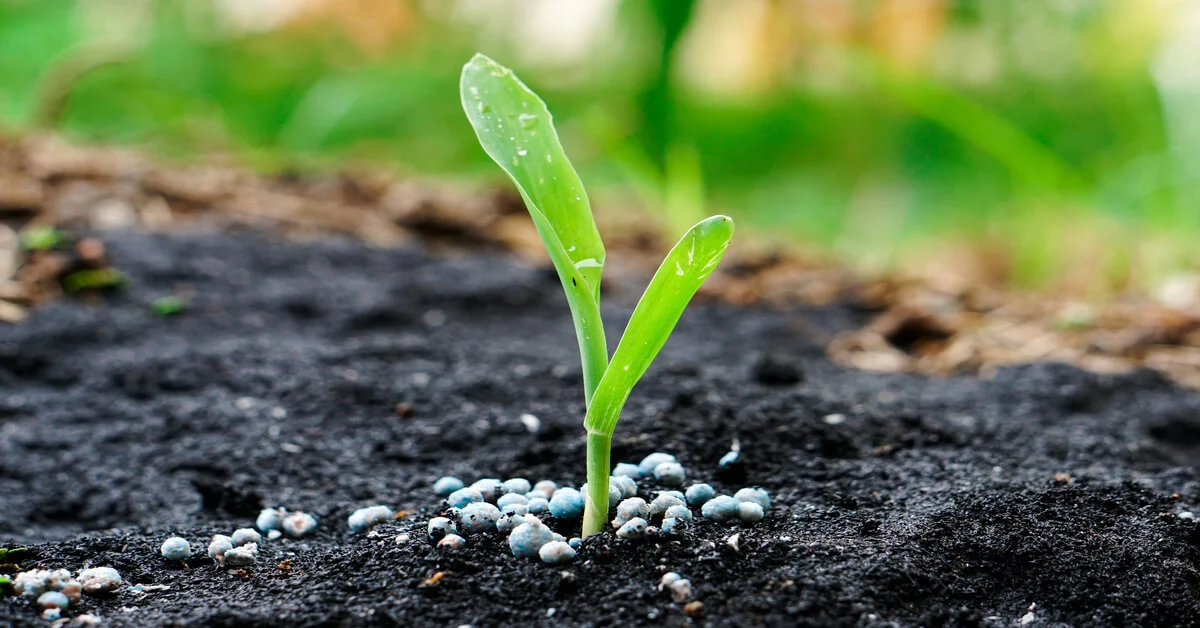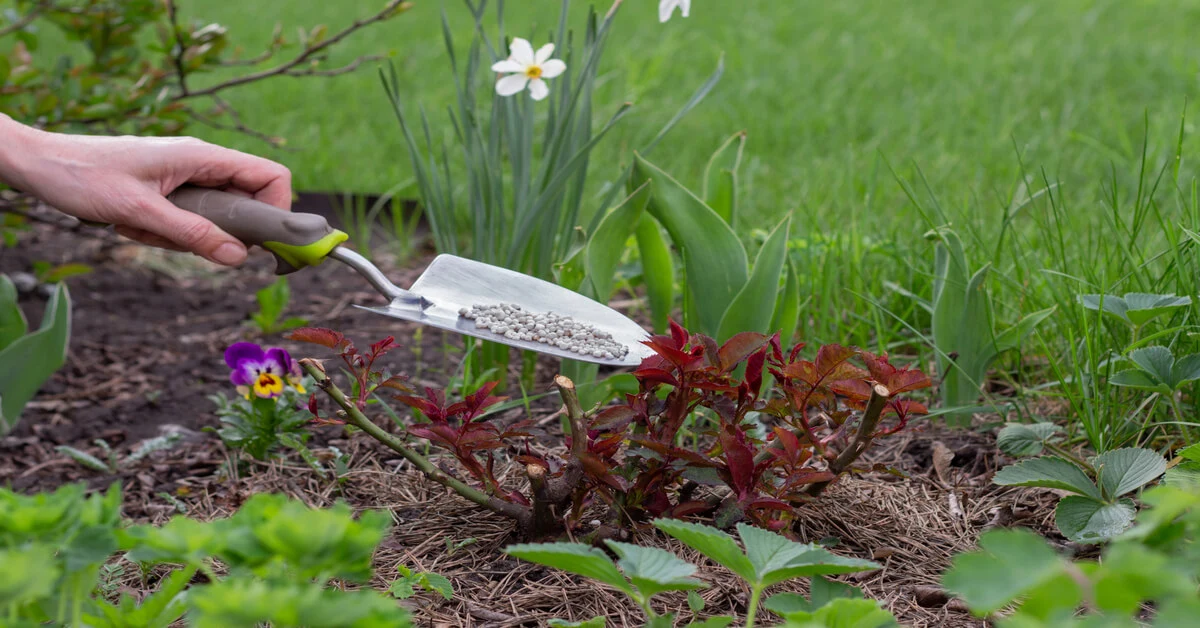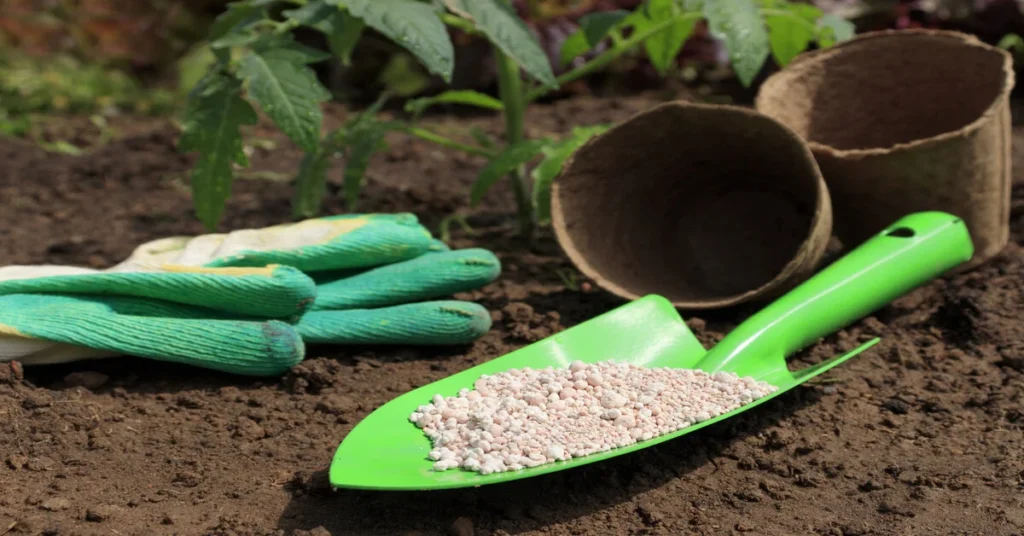Understanding the dissolution rate of granular fertilizer is essential in achieving the desired results in your garden or lawn. The time it takes for granular fertilizer to dissolve and subsequently release nutrients into the soil can vary considerably. The dissolution rate largely depends on the type of fertilizer you use, weather conditions, and soil type.
So, the dissolution process for granular fertilizers ranges from a few days to several months, depending on the type of fertilizer and environmental conditions.
When to Apply Granular Fertilizers

Choosing the right time to apply granular fertilizers is crucial for maximizing their benefits. Both organic and synthetic granular fertilizers typically take longer to dissolve and completely release nutrients than their liquid counterparts. As a result, you should apply these fertilizers well in advance of when your plants will need the nutrients.
The best time to apply for lawn fertilizers is in the early spring when the grass begins to green up. A second application can be made in the fall to prepare the lawn for winter dormancy. In contrast, for annuals or vegetables, apply the granular fertilizer at planting time and again in the middle of the growing season.
Remember that the rate at which granular fertilizers dissolve in water and subsequently release nutrients can vary. Slow-release forms of fertilizer can take weeks to dissolve fully. Therefore, keep these timelines in mind when planning your fertilizer application.
How to Apply Granular Fertilizers

Here are step-by-step instructions on how to apply granular fertilizers effectively:
1. Test Your Soil: Before using granular fertilizer, it’s a good idea to test your soil to understand its nutrient content and pH level. This will help you choose the right type and amount of fertilizer for your soil.
2. Choose the Right Fertilizer: Select a granular fertilizer that best suits your plant’s needs. Organic granular fertilizer options improve soil health over the long term, while synthetic options often provide nutrients more quickly.
3. Measure the Right Amount: Over-fertilizing can damage plants and pollute nearby water sources. Use the guidelines provided on the fertilizer package to determine the right amount.
4. Apply the Fertilizer: Spread the granular fertilizer evenly across the soil or lawn. Consider using a broadcast spreader for large areas to ensure an even application.
5. Water the Soil: After applying the granules, thoroughly water your soil or lawn. This helps the granules dissolve, and the nutrients infiltrate the ground.
6. Monitor and Repeat: Monitor your plant’s health to see if it responds well to the fertilizer. You may need to adjust your fertilizing routine based on their response.
With careful timing and proper application, granular fertilizers can effectively supplement your soil and promote healthy, vibrant growth in your garden or lawn.
How Long Does Granular Fertilizer Last In Soil?
Granular fertilizers are popular because they offer a controlled release of nutrients. The question of “How long does granular fertilizer last in soil?” is complex and depends on various factors. Generally, they can last anywhere from two weeks to several months.
Slow-release fertilizers, a typical granular fertilizer, break down slowly, typically over weeks or months. Nitrogen, a critical nutrient in these fertilizers, is released over time, feeding your plants for an extended period.
In contrast, fast-release granular fertilizers dissolve more quickly, often within a few days, providing a burst of nutrients fast. But they also run a higher risk of causing fertilizer burn, where the individual blades of grass die due to too much fertilizer.
Does Granular Fertilizer Need To Be Watered In?
After you apply granular fertilizer to the soil, watering is necessary to dissolve and activate the fertilizer. Water helps the granule break down and release its nutrients into the ground. Applying fertilizer without watering may sit on the soil surface without providing the intended benefit to your plants.
Some may wonder if rain is enough to dissolve and activate the fertilizer. Light rain can be sufficient, but a lack of water or a heavy downpour that washes away the fertilizer can disrupt the process.
Can You Dissolve Granular Fertilizer In Water?
Yes, you can dissolve granular fertilizer in water. This method creates a liquid fertilizer from dry granules, which some gardeners prefer because it allows for more immediate plant uptake. However, remember to apply the dissolved fertilizer directly to the soil, not the leaves, to prevent burns.
Be aware that not all granular fertilizers will dissolve entirely in water. The type of fertilizer, along with the size and structure of the granule, can influence how well it dissolves.
In addition, remember that although liquid fertilizer provides a burst of nutrients quickly, the supply of dry fertilizer or slow-release granular fertilizers lasts longer. A good rule of thumb is that one gallon of water is typically sufficient to dissolve around one pound of granular fertilizer.
Granular vs Liquid Fertilizer
Granular and liquid fertilizers each have their advantages. Granular fertilizers are easy to apply, provide a slow release of nutrients, and are less likely to burn the plants if used correctly. They are also less labor-intensive as they do not require frequent applications.
On the other hand, liquid fertilizers are absorbed by the plants more quickly. They are easy to apply uniformly. However, they often require more frequent applications, and the nutrient leaching risk is higher than granular fertilizers.
Conclusion
Using granular or liquid fertilizer will depend on your needs, the type of plants in your yard, and your gardening goals. Remember that while granular fertilizer can take time to dissolve, its effects are long-lasting, providing your plants with the nutrients they need for extended periods. In contrast, liquid fertilizers provide a rapid nutrient boost but may require more frequent applications.
Understanding how long it takes for granular fertilizer to dissolve will allow you to plan your fertilizer application better and get the most out of your garden or lawn.



